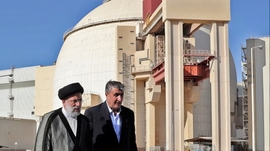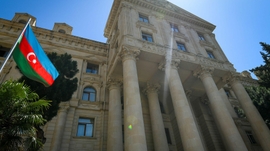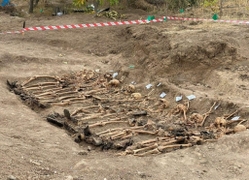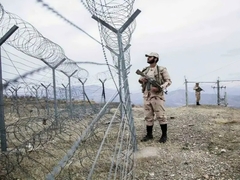Prime Minister Binali Yıldırım reaffirmed Turkish support for Georgia’s territorial integrity and its aspirations for deeper Euro-Atlantic integration during his visit to Tbilisi last week, where he attended the second round of the High Level Strategic Cooperation Council (HLSC) between Turkey and Georgia.
"It is very important for Turkey that Georgia’s territorial integrity and sovereignty rights are not violated,” Yıldırım said at a press conference last Tuesday in Tbilisi, following his meeting with Georgia’s Prime Minister Giorgki Kvisikashvili.
“Turkey was one of the first countries to recognize Georgia’s independence, and supports the territorial integrity and sovereignty of Georgia,” Kvirikashvili said in appreciation of Ankara’s support.
Georgia has suffered from armed clashes with separatists in breakaway regions bordering Russia, namely Abkhazia in the northeast and along the Black Sea coast, and South Ossetia in the north. Georgia accuses Moscow of backing rebel groups, some which have been absorbed by the Russian armed forces in April.
“Turkey could contribute to the peaceful resolution of [Georgia’s] conflicts, particularly in Abkhazia through its very strong influence in the region and existence of a very influential Abkhaz diaspora in Turkey,” explained Giorgi Badridze, Senior Fellow at the Georgian Foundation for Strategic and International Studies in Tbilisi.
Tbilisi and Ankara established the High Level Strategic Cooperation Council (HLSC) mechanism in 2016, meant to strengthen bilateral ties between the two Black Sea states. Last week’s round of meetings touched upon trilateral relations with Azerbaijan, and focused on the implementation of the Baku-Tbilisi-Kars railway project, an imitative beset with delays since 2010 but expected to be completed later this year. The railway will form part of a broader land and sea network, linking Central Asia and China to Europe, while bypassing Russia.
“The corridor will be one of the important segments of the revival of the great Silk Road project,” noted Kvirikashvili during the meetings.
The railway project is expected to deliver an economic and geopolitical boon to Turkey, which as a result will have a direct transportation link to Turkic states in the Caspian region, including Azerbaijan, Kazakhstan, and Turkmenistan. Goods produced in the region will have increased access to the European market of over 500 million people.
While economic and trade matters were central to last week’s high-level meetings, Turkey’s role in the security of the Black Sea region, and its support of Georgia’s aspirations to be integrated into Europe, topped the talks. Yıldırım vowed his country’s support for Georgia’s ascension into NATO.
“Turkey is a key player, not just an active player, for the stability of the Black Sea region and Georgia,” Badridze told Caspian News. “It has a proven track of record of being a truthful, stable, dependable ally and partner for Georgia. In the hard times of early 1990s, Turkey was there to provide whatever assistance Georgia needed,” Badridze said.
Trade turnover between Georgia and Turkey stood at slightly over $1.5 billion in 2016, according to the National Statistics Office of Georgia. Turkey was the second-largest trade partner for Georgia, in terms of both exports and imports.


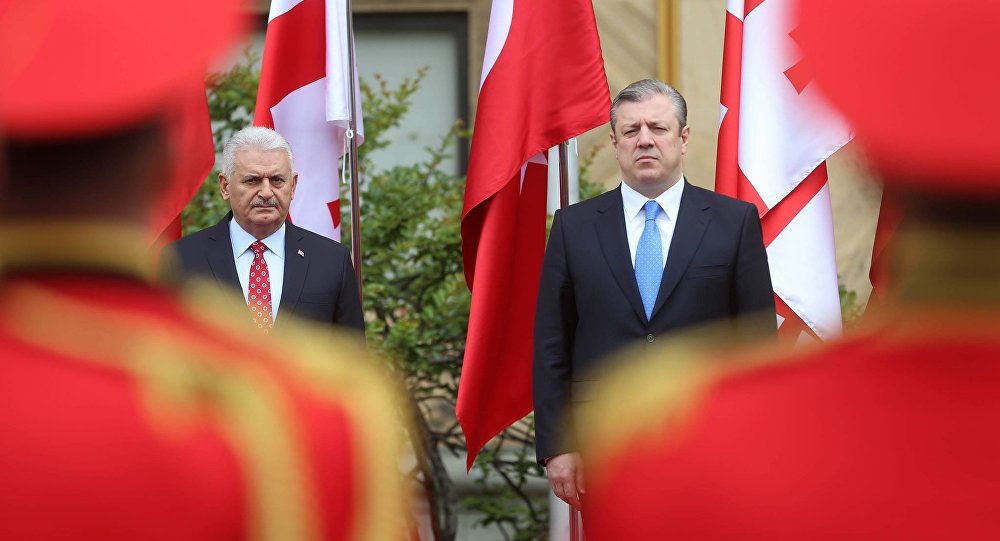




 Azerbaijan, Uzbekistan, and Kazakhstan are planning to merge their energy systems following a historic memorandum of understanding (MoU) signed by ...
Azerbaijan, Uzbekistan, and Kazakhstan are planning to merge their energy systems following a historic memorandum of understanding (MoU) signed by ...
 President Ilham Aliyev praised Azerbaijan’s cultural diversity as a key factor in fostering peace, stability, and unity within the country, where a...
President Ilham Aliyev praised Azerbaijan’s cultural diversity as a key factor in fostering peace, stability, and unity within the country, where a...
 The Azerbaijani government has rejected the recent claims made by French Interior Minister Gérard Darmanin, who accused Baku of fostering separatis...
The Azerbaijani government has rejected the recent claims made by French Interior Minister Gérard Darmanin, who accused Baku of fostering separatis...
 The Chief of the Atomic Energy Organisation of Iran (AEOI) said that the country has allowed more than 130 inspectors of the International Atomic E...
The Chief of the Atomic Energy Organisation of Iran (AEOI) said that the country has allowed more than 130 inspectors of the International Atomic E...
 Ulviyya Fataliyeva, a female Azerbaijani chess grandmaster, was crowned this week at the European Women’s Chess Championship (EWCC) in Rhodes, Gree...
Ulviyya Fataliyeva, a female Azerbaijani chess grandmaster, was crowned this week at the European Women’s Chess Championship (EWCC) in Rhodes, Gree...
 Maria Zakharova, the spokeswoman for the Russian Foreign Ministry, has firmly stated that Russia categorically rejects any suggestion of exchanging...
Maria Zakharova, the spokeswoman for the Russian Foreign Ministry, has firmly stated that Russia categorically rejects any suggestion of exchanging...
